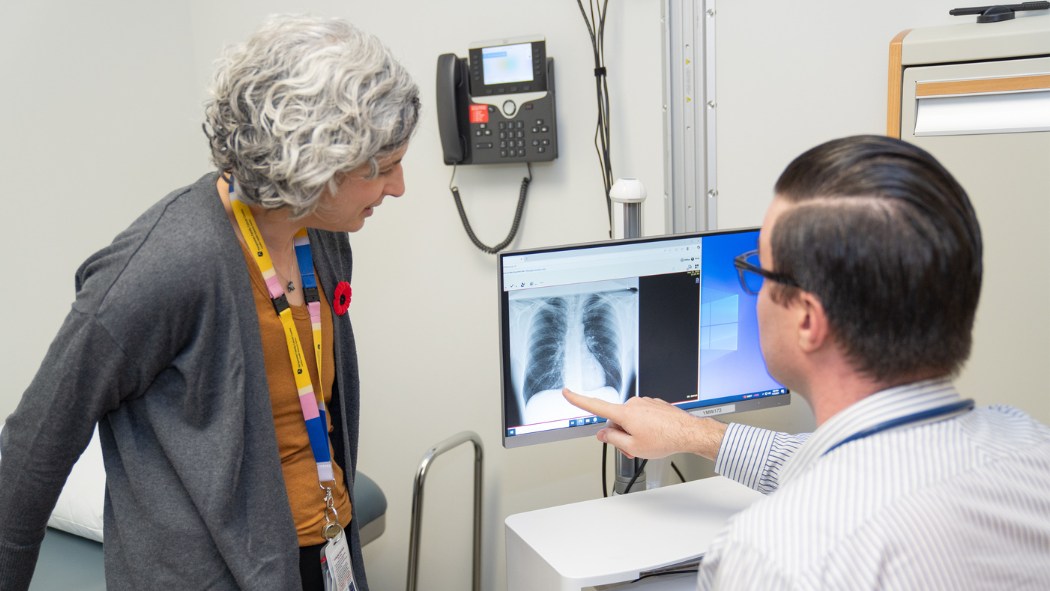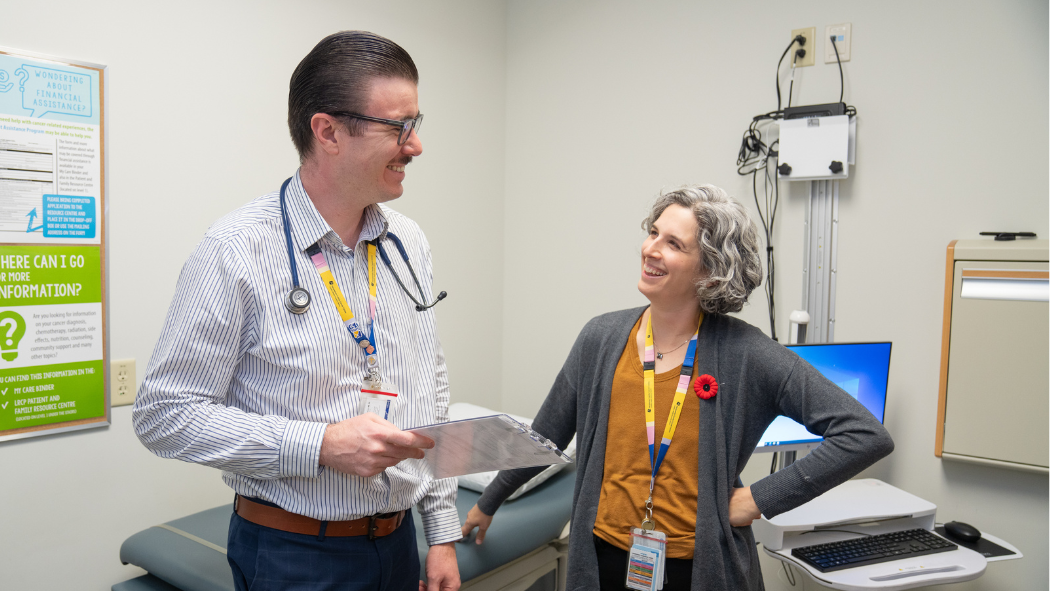
Pictured: Nurse Practitioners Sari Belzycki (left) and Matthew Parezanovic (right) review a lung X-ray.
November 13, 2025
Nurse practitioners have become a cornerstone of patient care at the Verspeeten Family Cancer Centre at London Health Sciences Centre (LHSC), helping to meet rising demand and reduce wait times.
Since 2017, the team of NPs at the Verspeeten has increased from three to 13 – growth that reflects the increasing complexity of cancer care and the essential role NPs play within it. Their independent clinics and integration into physician-led teams have significantly expanded capacity while maintaining high standards of care.
“As nurse practitioners, we complete advanced training that allows us to diagnose, prescribe, order and interpret diagnostic tests, and manage treatment plans,” says Matthew Parezanovic, nurse practitioner at LHSC. “This allows us to take a more active role in patient care, helping to balance caseloads and ensure effective, timely support for all.”
A new model of care
NP-led clinics span a wide range of cancer types, including prostate, testicular, breast, lung, and head and neck. In these settings, NPs independently follow patients who are stable on treatment, manage symptoms, coordinate referrals and provide health education, while working in close collaboration with oncologists.
The impact is tangible. In just one year, two full-time NPs leading the prostate cancer clinic facilitated nearly 1,000 patient visits – the equivalent of 62 full clinic days – increasing access to medical oncology and improving patient outcomes by ensuring timely, personalized medical and psychosocial support.
As cancer therapies evolve and patients continue to live longer, the demand for ongoing follow-up care increases as well. NP-led clinics are helping meet this need, with plans underway to extend services to additional patient populations, including those receiving adjuvant therapies to prevent their cancer from returning.
A collaborative, patient-centered approach
This model thrives through the support of medical oncologists, who play a pivotal role in identifying patients well-suited for NP-led care.
“With one in two Canadians expected to receive a cancer diagnosis in their lifetime, it’s critical we continue looking for innovative ways to build capacity so we can see everyone who is depending on us in a timely manner,” says Dr. Scott Ernst, medical oncologist at LHSC.
The expansion of NP-led clinics at the Verspeeten Family Cancer Centre exemplifies a broader shift toward interdisciplinary, patient-centred care. By fully leveraging the expertise of nurse practitioners, LHSC is improving access and ensuring patients receive high-quality care at every stage of the cancer journey.
